- Introduction
- What is Saffron?
- Nutritional Profile of Saffron
- Top 10 Health Benefits of Saffron
- How to Use Saffron for Health Benefits
- Potential Side Effects and Precautions
- Where to Buy High-Quality Saffron?
- Conclusion
- Frequently Asked Questions (FAQ) About the Health Benefits of Saffron
- What are the main health benefits of saffron?
- Can saffron help with depression and anxiety?
- How does saffron support heart health?
- Can saffron improve sleep quality?
- Is saffron good for eye health?
- How does saffron help with weight management?
- Does saffron have antioxidant properties?
- Can saffron improve skin health?
- How can I consume saffron to get its health benefits?
- Are there any side effects of consuming saffron?
Introduction
Saffron, often referred to as “red gold,” is one of the most expensive spices in the world. But did you know that beyond its rich color, aroma, and culinary value, saffron also offers an array of health benefits? In this comprehensive guide, we’ll explore the health benefits of saffron and reveal how this golden elixir can improve physical, mental, and emotional well-being.
This potent spice has been used for centuries in traditional medicine, especially in Persian, Indian, and Mediterranean cultures. Its therapeutic properties have been backed by modern scientific studies, which confirm that saffron can positively influence mood, heart health, brain function, and more.
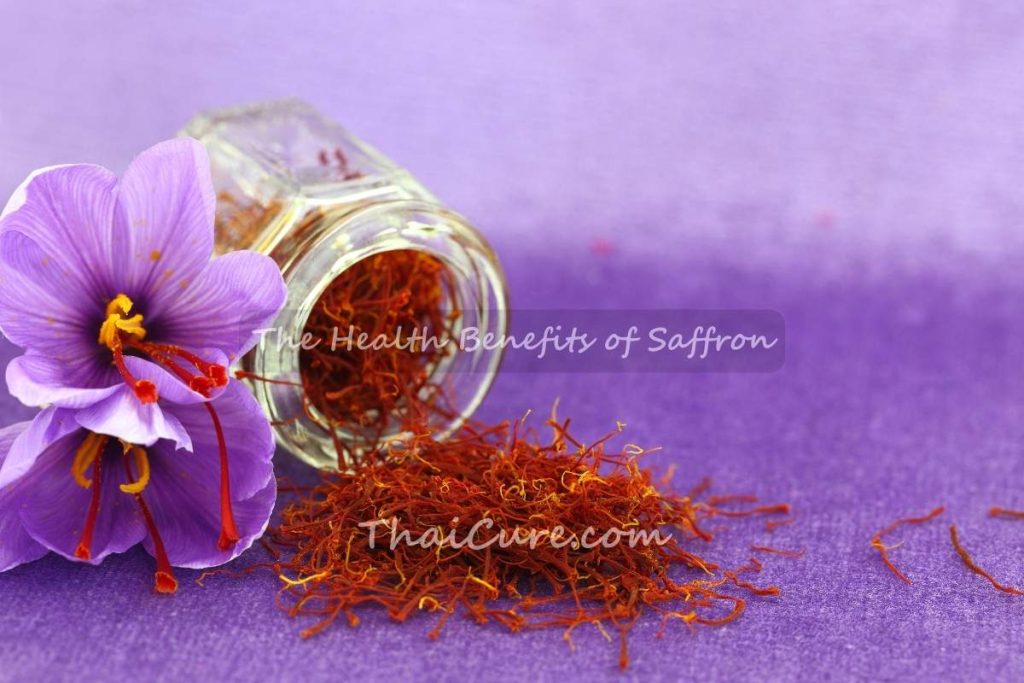
If you’re looking for a natural way to support your overall health, read on to discover the surprising health benefits of saffron and how you can incorporate it into your daily routine.
What is Saffron?
Saffron is a spice derived from the flower of Crocus sativus, also known as the “saffron crocus.” The vibrant red threads, or stigmas, of this flower are carefully handpicked, dried, and used as a seasoning and natural dye. The painstaking process of harvesting saffron is one reason behind its high price.
Grown primarily in countries like Iran, Spain, India, and Greece, saffron has been treasured for its flavor, color, and medicinal properties for over 3,000 years. This precious spice is rich in bioactive compounds like crocin, crocetin, safranal, and kaempferol, which contribute to its potent health-boosting properties.
Nutritional Profile of Saffron
The nutritional composition of saffron is what gives it its powerful health benefits. While it is used in small quantities, its nutritional impact is immense. Here’s a look at its key components:
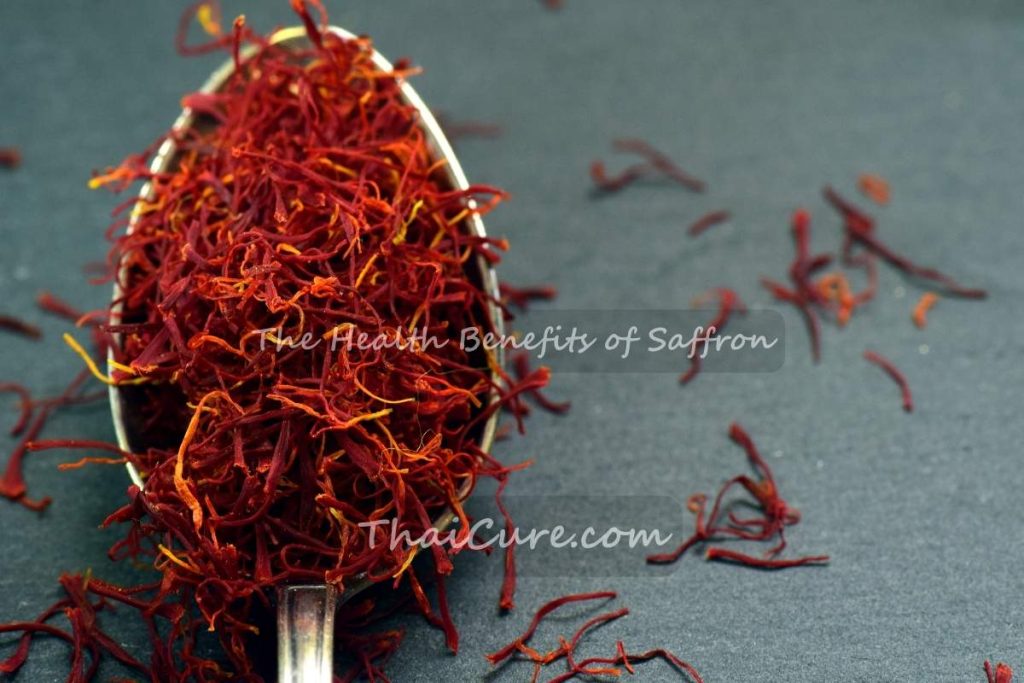
- Vitamins: Saffron is a source of B vitamins, especially vitamin B6, which supports brain health and mood regulation.
- Minerals: It contains essential minerals like iron, magnesium, potassium, and zinc.
- Antioxidants: Saffron is packed with powerful antioxidants such as crocin, safranal, and picrocrocin, which protect against oxidative stress.
- Bioactive Compounds: These include anti-inflammatory and neuroprotective agents, making saffron a natural remedy for multiple health conditions.
Top 10 Health Benefits of Saffron
Enhances Mood and Reduces Depression
Saffron has earned the nickname “sunshine spice” not just because of its bright yellow color but also for its mood-enhancing properties. Studies have shown that saffron can help reduce symptoms of depression and anxiety. It works by increasing serotonin levels in the brain, a neurotransmitter associated with happiness.

Clinical trials have found that saffron extracts can be as effective as certain antidepressant medications, but without the adverse side effects. This makes it a popular natural remedy for mood support.
Supports Eye Health
Age-related macular degeneration (AMD) is a leading cause of vision loss. Saffron contains crocin, a compound known to improve retinal cells’ function and protect them from oxidative stress. Regular consumption of saffron has been shown to slow down the progression of AMD, improve visual acuity, and support overall eye health.
Boosts Heart Health
The heart-protective health benefits of saffron are attributed to its ability to lower cholesterol levels, reduce blood pressure, and improve blood vessel function. Its antioxidants help reduce oxidative stress in the cardiovascular system, promoting healthier arteries and reducing the risk of heart disease.
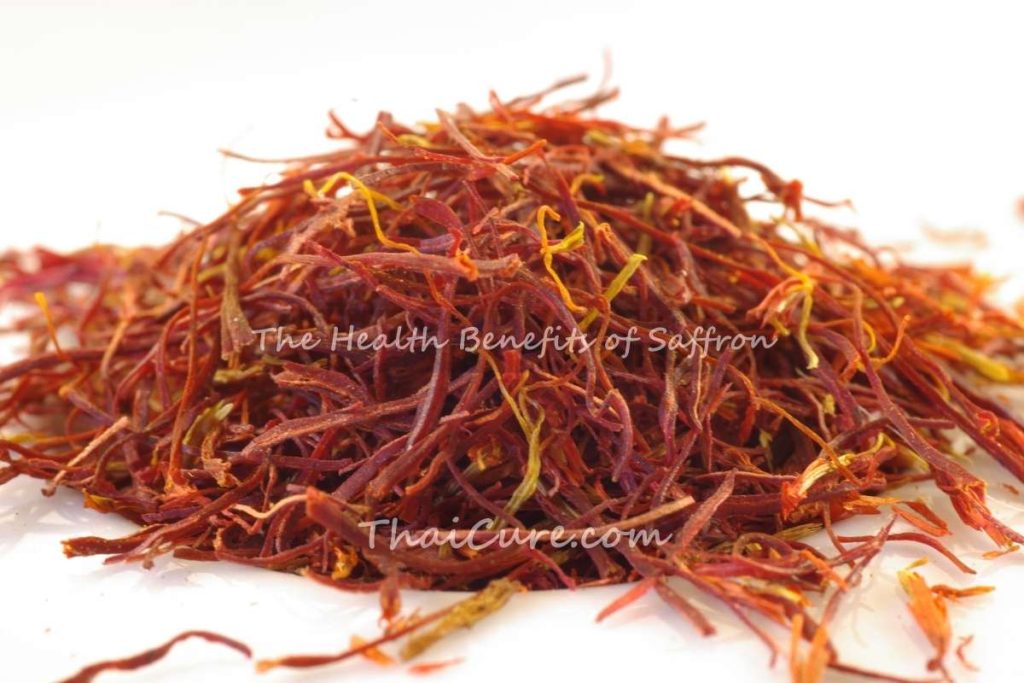
Promotes Better Sleep
If you struggle with insomnia or poor-quality sleep, saffron may offer a natural remedy. Its calming properties, especially from the bioactive compound safranal, help to relax the mind and body. Drinking saffron-infused milk before bedtime is a popular traditional method for promoting restful sleep.
Improves Cognitive Function
Saffron is a brain-boosting spice. Research indicates that it may help prevent neurodegenerative diseases like Alzheimer’s and Parkinson’s. The antioxidant properties of crocin and safranal protect brain cells from damage, reduce cognitive decline, and support memory and learning functions.
Offers Antioxidant Protection
Saffron is a powerhouse of antioxidants, which help neutralize free radicals in the body. Antioxidants like crocin, safranal, and picrocrocin protect cells from oxidative stress, which can lead to chronic diseases such as cancer, diabetes, and heart disease.
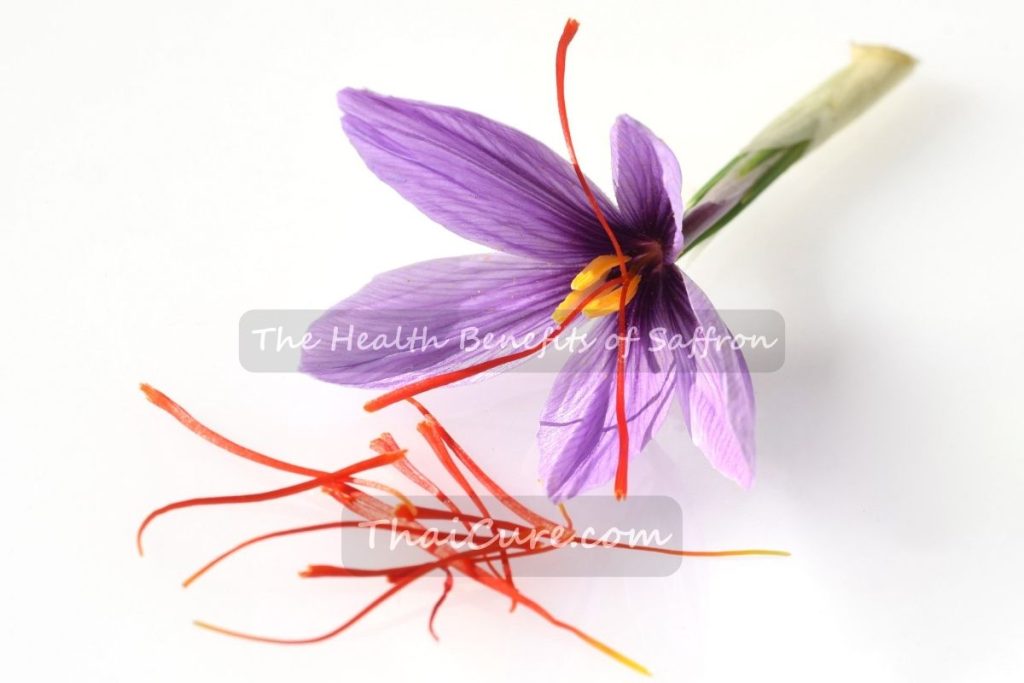
Relieves PMS Symptoms
Premenstrual syndrome (PMS) can bring about mood swings, irritability, and physical discomfort. Saffron has been shown to reduce the severity of PMS symptoms, including cramps and mood disturbances, by balancing hormonal fluctuations.
Aids in Weight Management
If you’re trying to lose weight, saffron might be a helpful ally. Saffron extract has been found to reduce appetite, curb snacking, and promote feelings of fullness, all of which support weight loss efforts. This is why saffron supplements are becoming increasingly popular in weight management programs.
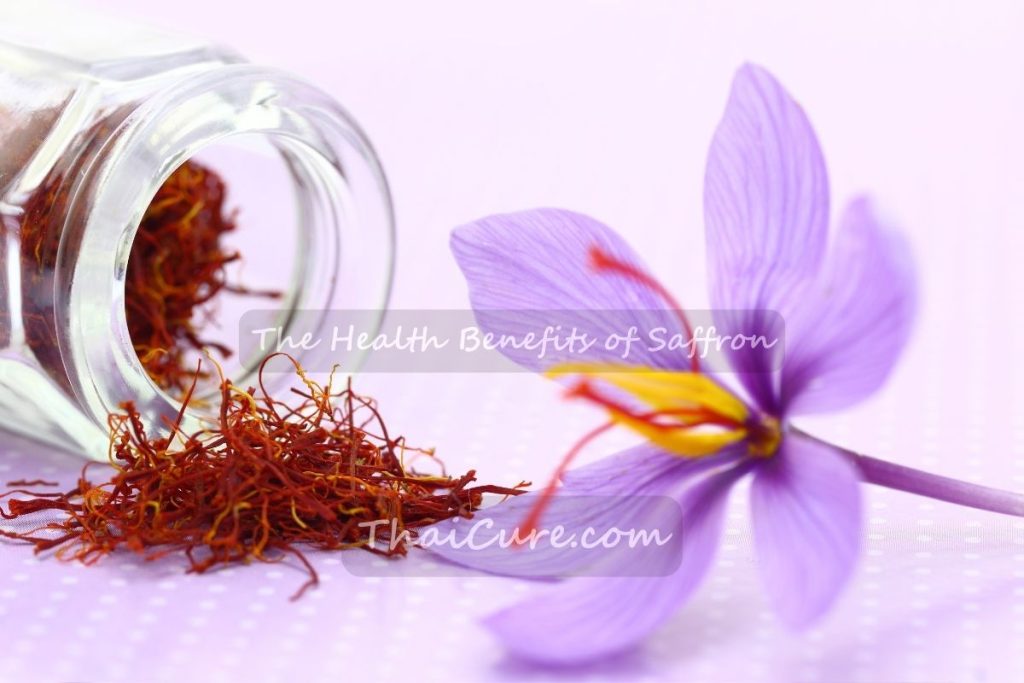
Supports Digestive Health
Saffron’s anti-inflammatory properties extend to the digestive system. It can alleviate gastrointestinal issues like bloating, indigestion, and ulcers. The antioxidants in saffron protect the stomach lining, promoting gut health and smoother digestion.
Enhances Skin Health
Due to its high antioxidant content, saffron is a prized ingredient in skincare products. It brightens skin, reduces hyperpigmentation, and fights signs of aging by promoting collagen production. Saffron-infused masks and creams are used in beauty routines to achieve glowing, youthful skin.

How to Use Saffron for Health Benefits
To reap the health benefits of saffron, you can incorporate it into your diet in various ways:
- Saffron Tea: Brew saffron threads in hot water for a soothing, antioxidant-rich tea.
- Infused Milk: Mix saffron with warm milk for a relaxing nighttime drink.
- In Cooking: Add it to rice, soups, curries, and desserts to enhance flavor and nutritional value.
- Saffron Supplements: Available in capsules, saffron supplements offer a convenient way to enjoy its health benefits.
Potential Side Effects and Precautions
While saffron is generally safe, excessive consumption may lead to dizziness, nausea, or allergic reactions. Pregnant women should avoid high doses, as it may stimulate uterine contractions. Stick to recommended doses (30-50 mg/day) to avoid side effects.
Where to Buy High-Quality Saffron?
To enjoy the full health benefits of saffron, it’s crucial to purchase pure, high-quality saffron. Look for reputable sellers that offer 100% pure saffron threads and avoid cheaper, artificially colored imitations. Trusted sources include specialty spice stores, online retailers, and health supplement providers.
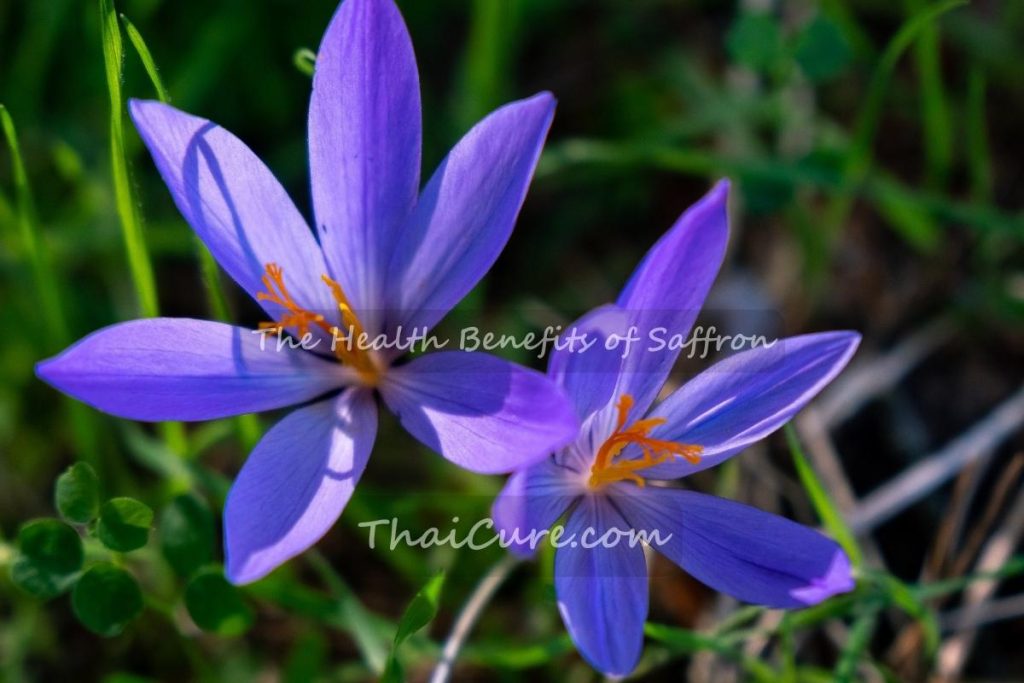
Conclusion
Saffron is more than just a culinary spice; it’s a natural remedy with impressive health benefits. From supporting mental well-being to enhancing physical health, the health benefits of saffron are backed by science and tradition alike. By incorporating saffron into your diet, you can enjoy improved mood, better sleep, heart health, and more.
If you’re ready to experience the transformative effects of saffron, start small by adding it to your meals, drinks, or daily supplements. Your body and mind will thank you!
Frequently Asked Questions (FAQ) About the Health Benefits of Saffron
What are the main health benefits of saffron?
Saffron offers numerous health benefits, including mood enhancement, improved heart health, better cognitive function, antioxidant protection, weight management support, and relief from PMS symptoms. It is also known to promote better sleep, enhance eye health, and improve skin health.
Can saffron help with depression and anxiety?
Yes, one of the most notable health benefits of saffron is its ability to improve mood and reduce symptoms of depression and anxiety. Research suggests that saffron works by increasing serotonin levels in the brain, which promotes a sense of well-being and happiness.
How does saffron support heart health?
Saffron supports heart health by reducing cholesterol levels, lowering blood pressure, and protecting against oxidative stress. Its antioxidant compounds, such as crocin, safeguard the cardiovascular system and reduce the risk of heart disease.
Can saffron improve sleep quality?
Yes, saffron can promote better sleep. The bioactive compound safranal has sedative properties that help calm the mind and body, making it easier to fall asleep. Drinking saffron-infused milk before bed is a traditional method to promote restful sleep.
Is saffron good for eye health?
Yes, saffron is beneficial for eye health, particularly in preventing age-related macular degeneration (AMD). Crocin, an active compound in saffron, improves retinal function and protects eye cells from damage caused by oxidative stress.
How does saffron help with weight management?
Saffron can aid in weight management by suppressing appetite and reducing the urge to snack. By promoting feelings of fullness, saffron helps people consume fewer calories, which supports weight loss and healthy eating habits.
Does saffron have antioxidant properties?
Yes, one of the key health benefits of saffron is its powerful antioxidant protection. It contains crocin, safranal, and picrocrocin, which fight free radicals, reduce oxidative stress, and protect against chronic diseases like cancer, diabetes, and heart disease.
Can saffron improve skin health?
Yes, saffron is a well-known ingredient in skincare due to its antioxidant and anti-inflammatory properties. It reduces hyperpigmentation, promotes collagen production, and fights signs of aging, resulting in brighter, more youthful-looking skin.
How can I consume saffron to get its health benefits?
You can consume saffron by adding it to tea, milk, or meals like rice, soups, and desserts. Alternatively, saffron supplements are available in capsule form for a more convenient way to enjoy its health benefits.
Are there any side effects of consuming saffron?
While saffron is generally safe, consuming it in large quantities may lead to dizziness, nausea, or allergic reactions. Pregnant women should avoid excessive saffron intake as it may stimulate uterine contractions. It is recommended to stick to the safe dosage of 30-50 mg per day.










